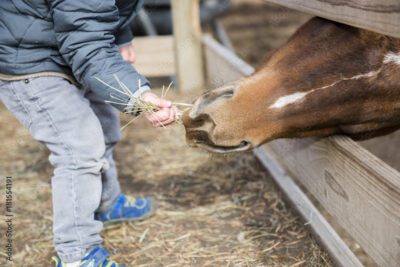By Christine Denise
Autism Mom and Contributing Writer for As You Are, a virtual clinic dramatically increasing access to early autism diagnostic services through the use of exclusively telehealth appointments
My friend Allison and I were pregnant with twins at the same time.
We were the same age.
Worked together.
Had parents who lived in the same state.
We had the same hair color.
So, we were frequently confused for one another.
It didn’t get much better when we chose the same school for our twins – and they were in the same class.
We started sharing stories about how our kids were doing. The milestones they were reaching, and the ones they were not. At that time, we believed all of our children were neurotypical.
Over time, I started to notice Allison didn’t talk as much about the developmental things her son was doing. She talked more about his twin sister than her son.
Our conversations focused much more on work and details of what we did on the weekend.
It was such a slight change I hardly noticed it.
A long lunch
One day, she asked me if we could have lunch – which was something we frequently did, so I found it odd that she would formally ask me.
“It’s kind of important, so I just want to be sure you can be there,” she said.
“Of course,” I answered, feeling a bit concerned.
All of the possibilities of what it could be about raced through my mind.
Did she get another job?
Is she moving?
Is she pregnant?
Are her and her husband having trouble?
She invited another one of our friends along, too.
Then, sitting across from us in a booth where we had sat countless times together eating our microwave meals, she said three words I’ll never forget:
“Michael has autism.”
I sat there stunned.
I had known Michael since he was born.
And was clueless.
Again, my mind raced.
What do you mean he has autism?
He’s 5 years old, so…
Then I blurted it out, “Oh my God Allison, how long have you known?”
Then, another stunner.
“About a year,” she answered, pursing her lips, almost acknowledging how shocking she knew that would sound to me.
Then, an immense feeling of sadness overwhelmed me as I wondered how and why she suffered with this knowledge alone for so long. What did we do to make her feel like she couldn’t confide in us, couldn’t turn to us?
Then, she explained it.
“I hope you guys understand, it’s taken me this long to even be able to say the word,” she said – still not saying “the word.”
It’s different
I tried my best to comfort her, thinking of all of the things she had told me about Michael’s development.
“Are you sure they’re right? I mean, how can they know? He’s so young,” I blurted out.
Michael didn’t fit the version of an autistic child I had in my own mind, having had limited exposure with them at the time.
I had no idea he was any different than neurotypical kids, other than he sometimes flapped his hands in excitement and didn’t make much eye contact.
He was fully verbal – overly verbal it seemed, as I remember marveling at his vocabulary for such a young age.
I now know he is high functioning.
“Remember the day we talked about how your son and Michael couldn’t remember to put on their shoes?” she asked me.
“Yeah, I told you my son would walk right out into the snow if I didn’t tell him 50 times to put his shoes on,” I told her.
She sat there quietly.
She told me that moment was one of the ways she knew her son was different.
She took him to her pediatrician, who was already concerned about a few milestones.
Then, to a specialist.
And, the diagnosis came.
It was one of her worst fears.
“It’s different,” she explained. “Your son just forgets. Michael knows he should put his shoes on, but he doesn’t like them. He doesn’t like the sensory input he gets from his shoes.”
She explained the routine they came up with to get him to put his shoes on.
Sing a song about putting shoes on.
Opening all of the laces.
No Velcro. He didn’t like the sound.
Sliding his foot in at least three times in and out.
Then tying his laces, and untying them if they weren’t just right.
Some days, it took less than a minute.
Other days, or even sometimes on the same day, it took an hour.
And for some reason, it clicked with me.
She had already been down all the roads I was going, doubting the doctors were right, trying to compare his habits to neurotypical kid.
And she had done it for a whole year, all by herself.
Then, it was my turn
Three years later, it was my turn to say “the word” to describe my own son.
Her story was part of the reason why I was able to use the word Autism to describe my son not long after his diagnosis.
And, it made explaining him to others easier given all of my son’s more obvious delays – being nonverbal, wearing chew necklaces so he doesn’t chew the collars of his shirts, wearing pull ups at 8 years old, eating with his hands, being unable to dress himself.
For Allison, the word Autism is still hard to say.
She’s since moved away, and we barely talk.
And not many people who now live around her know about Michael’s Autism.
It’s taught me how it’s ok to cope with this diagnosis in whatever way works for you.
Whether you dye your hair blue to raise awareness for autism, go crazy on social media telling your story or prefer not to share it with anyone, ever, you have to do what works for you.
Because you have to work for your child.
For Allison, she has accepted the diagnosis.
Michael gets all of the support, therapy and attention he needs as Allison is a fierce advocate for him, making sure he gets all of the services he needs.
She just prefers to do it alone.
That’s one of the few ways we differ.
And that’s OK.
Do you have questions about your child’s development? The team at As You Are provides useful autism screening and diagnostic evaluations for kids 16 months to 10 years old via telehealth appointments.
Disclaimer: I am not a medical professional. This is a sponsored blog post, but all opinions are my own.


















